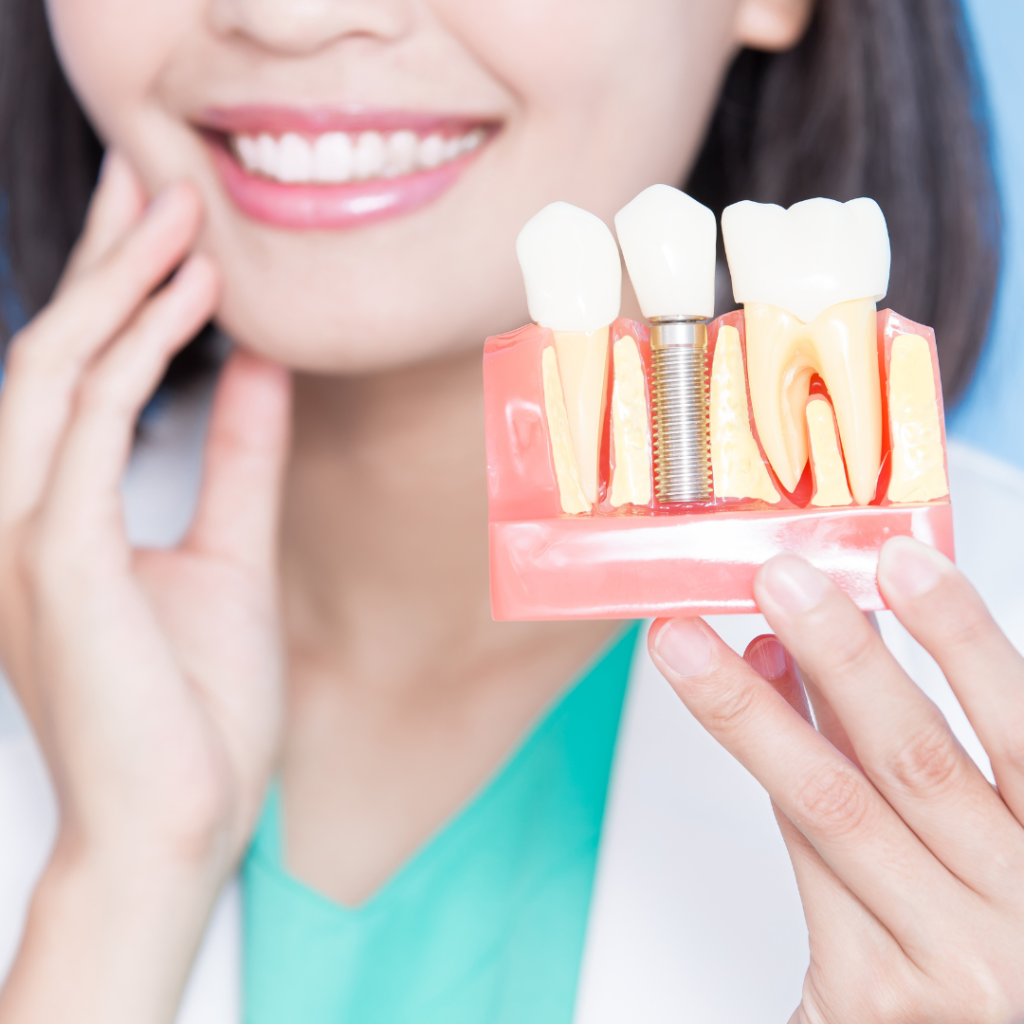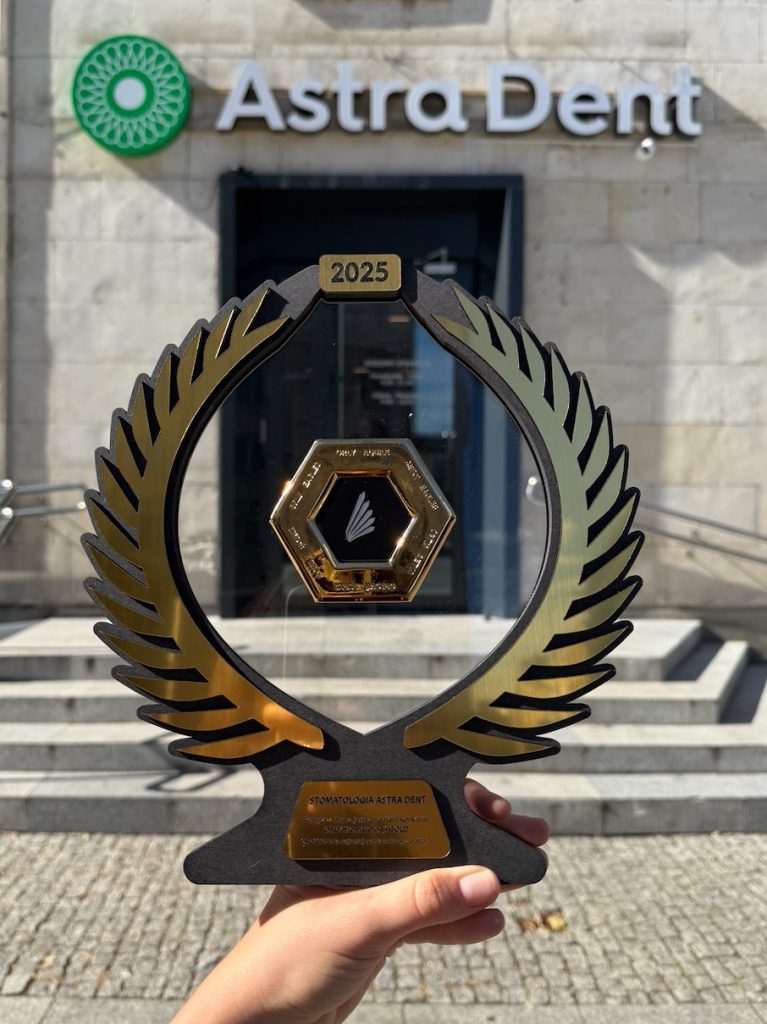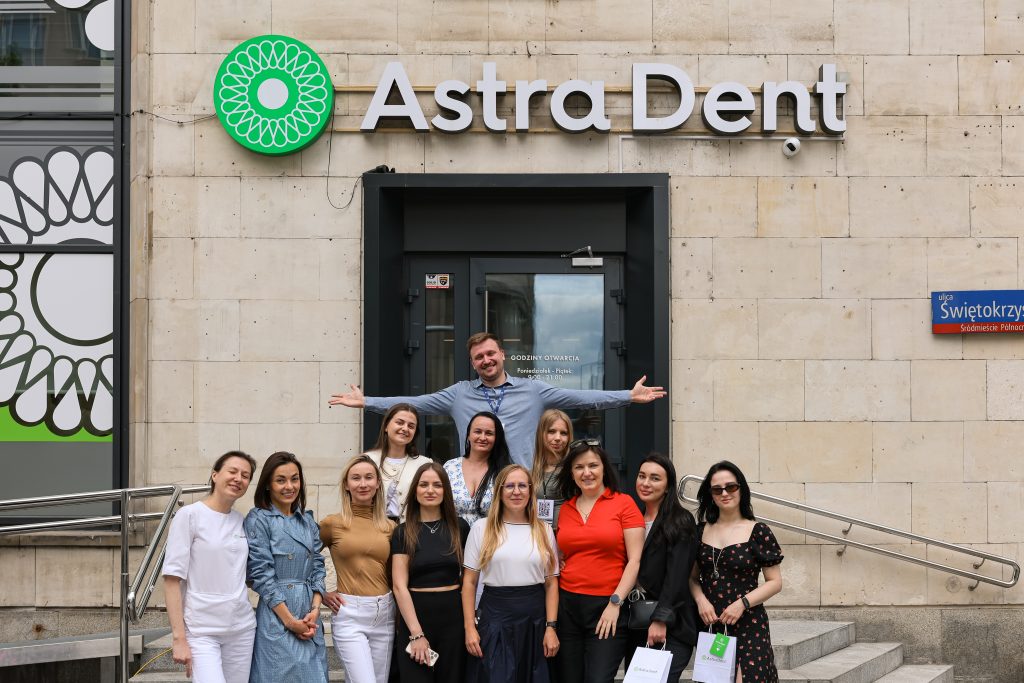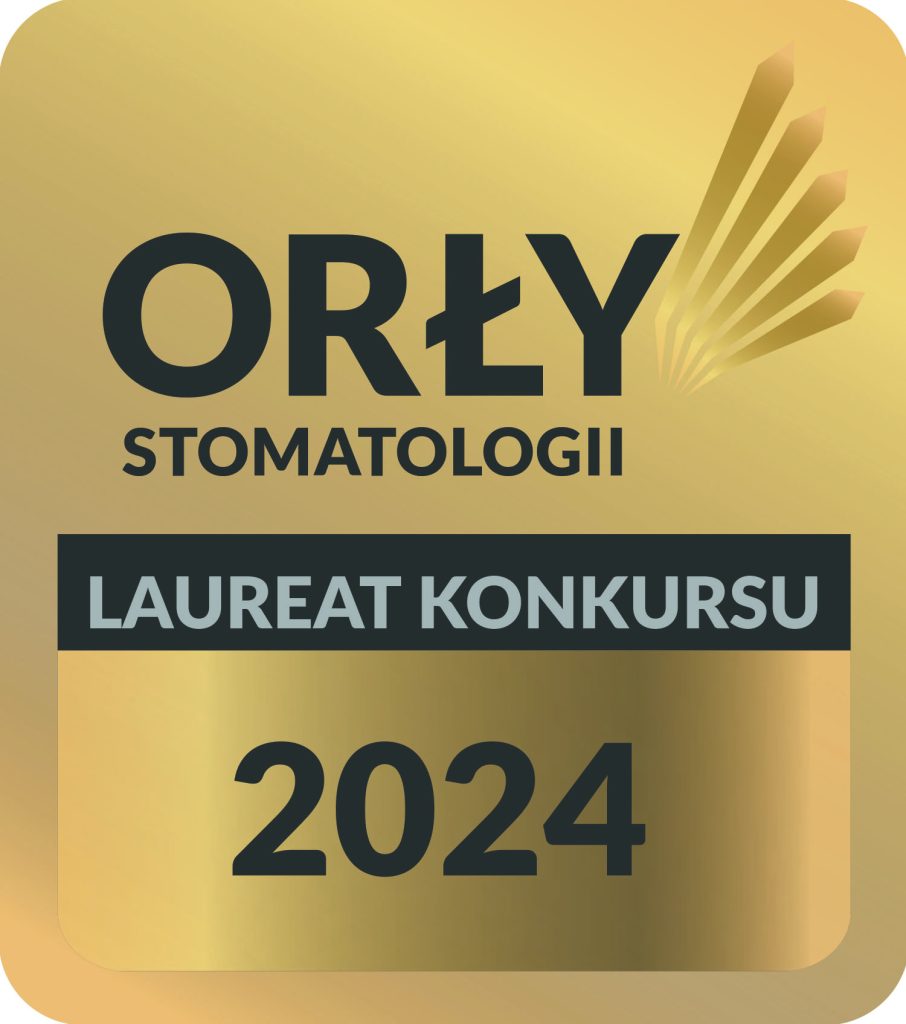Consultation with an orthopedist in Warsaw is the first step to a full-fledged smile
An orthopedic dentist is a doctor who restores the integrity of the dentition and the correct function of the bite. Their task is to accurately select a crown or prosthesis that will withstand the load, look natural and will not harm neighboring tissues. Orthopedic treatment at Astra Dent is based on digital diagnostics, high-precision modeling of structures and functional results.
A consultation is needed not only for patients with missing teeth. A damaged crown, worn fillings, grinding at night, crunching in the jaw – symptoms that indicate occlusion pathologies or overloading of individual areas of the dentition. The orthopedist analyzes the situation in a complex: conducts functional diagnostics, assesses the condition of the joints and masticatory muscles, examines the height of the bite. Thanks to this, a structure is selected that not only restores the tooth, but also works harmoniously in the entire bite.
Why do patients choose to consult an orthopedist at Astra Dent Warsaw?
Prosthetics is part of functional treatment, not just a way to improve appearance. The design must correspond to the patient’s individual anatomy, evenly distribute chewing load and maintain the health of the gums and bone tissue. To achieve the desired result, accurate diagnostics, digital modeling and teamwork between an orthopedist and a dental technician are necessary.
Advantages of consulting an orthopedist at Astra Dent:
- Modern diagnostics (3D images, digital impressions). We use intraoral scanners, cone beam computed tomography (CBCT) and digital photo protocols. Doctors accurately assess bone volume, joint position, bite height and periodontal condition.
- Cooperation with a proven dental laboratory. Orthopedic designs are manufactured in a certified laboratory with control of accuracy and compliance with the CAD model. If necessary, the doctor makes changes to the technical specifications, coordinating the details directly with the laboratory.
- A wide selection of materials: zirconia, ceramics, metal-ceramics, etc. All materials undergo a preliminary check for tightness of fit to the abutment, biocompatibility and color stability. For patients with high aesthetic requirements, it is possible to use pressed ceramics or monolithic zirconia with multi-layer staining.
- An individual approach. Before treatment, the patient undergoes a consultation, photo protocol and a diagnostic wax-up fitting. Due to this, the doctor can assess how the future structure will look in the dynamics of the face and, if necessary, correct the shape.
- An experienced orthopedist with 10 years of practice. Astra Dent employs specialists who are trained in the best dental centers in Europe, work with premium dental implants and master the technique of digital protocols from scanning to fixing the structure.
Coordinated cooperation between the orthopedist and the technician, accurate diagnostics and high-quality materials are the conditions that affect the service life of a crown or bridge. Astra Dent specialists consider each clinical case individually, and decisions are made after accurate analysis of digital data.
What happens at an orthopedist consultation at Astra Dent Warsaw
The first appointment is an important stage on which the accuracy of the diagnosis and the subsequent treatment plan depend. A consultation at Astra Dent in Warsaw is not limited to a brief examination. The doctor analyzes the bite function, the quality of the installed structures and the general condition of the oral cavity, and also conducts digital diagnostics. Thanks to this, visible and hidden disorders are detected, for example, overloading of the chewing apparatus or bone atrophy.
What does the structure of the initial appointment at Astra Dent look like:
- Collection of anamnesis, discussion of complaints and expectations. The patient talks about previous treatment, discomfort, difficulties with chewing. The doctor clarifies what tasks need to be solved – restoration of function, aesthetics or adaptation for implantation.
- Examination of the oral cavity. An assessment of the condition of the teeth, gums, mucous membrane and existing orthopedic structures is carried out. Special attention is paid to the load zone, which often lacks visually noticeable symptoms.
- Analysis of images (panoramic, CT). The study helps to assess the bone tissue, the position of the roots, the condition of the periodontal ligament and inflammatory foci. In complex cases, a computed tomography scan with 3D reconstruction is performed, which gives a complete picture of the spatial position of the structures and allows you to plan the treatment.
- Assessment of the bite, the condition of the mucous membrane, gums, abutment teeth. An analysis of the jaw closure, the tone of the chewing muscles and potential traumatization of the mucous membrane is performed. If prosthetics are planned, abutment teeth or areas for implant placement are determined.
- Selection of prosthetic options (crowns, bridges, dentures on implants, removable structures). The doctor offers 2-3 solutions depending on the clinical situation, the patient’s budget and their wishes. Each option is accompanied by an explanation of the technical features, service life and stages of manufacture.
- Estimated cost and terms. After approval of the preliminary plan, the patient receives a calculation indicating the number of visits and the terms of manufacturing the structure. If necessary, a phased schedule is drawn up taking into account financial capabilities.
- Discussion of guarantees and stages of treatment. The specialist explains how the guarantee for materials and work works, what conditions must be met to maintain it. Recommendations for the care of the orthopedic structure after installation are also discussed.
After the consultation, the patient receives a detailed treatment plan with the justification of each stage: the choice of materials, type of structure, method of fixation and expected terms. In complex clinical cases, diagnostic modeling is performed before prosthetics, which allows assessing the shape, height and position of future teeth in the bite. If necessary, a fitting of the temporary structure is performed to check its functionality and aesthetics before the manufacture of the permanent prosthesis.
Indications for consultation with an orthopedist
Ignoring dental problems leads to complications – improper load distribution, inflammation of the gums, bone atrophy, destruction of neighboring teeth. It is necessary to consult an orthopedist for any changes in the chewing function or the condition of orthopedic structures. The specialist does not evaluate the crown in isolation, but the entire system – bite, muscle activity, condition of the joints, periodontium and supporting teeth.
When to consult a doctor:
- Loss of one or more teeth. The absence of one tooth threatens with displacement of the entire row, overloading of the chewing zones and change in bite. The orthopedist selects a method of restoration taking into account anatomy, function and materials – from a single crown on an implant to a bridge-like structure.
- Abrasion of teeth. Abrasion of enamel, reduction of the bite height and exposure of dentin – a functional problem. In such cases, the doctor determines the cause (bruxism, pathological bite) and offers prosthetic rehabilitation with fixation of the chewing level.
- An old crown/bridge that has fallen off or broken. Even if the structure does not cause pain, its loss means a violation of tightness, the risk of secondary caries or fracture of the abutment tooth. The orthopedist assesses whether it can be restored, whether replacement is necessary, and what alternatives will be safer.
- A change in bite or chewing disorders. Incomplete closure of the teeth, asymmetry in the work of the jaws, or pain when chewing indicate dysfunction of the temporomandibular joint or overload of individual zones. Based on the analysis of plaster models or digital scans, the doctor plans the necessary orthopedic intervention.
- Preparation for implantation. Before installing an implant, it is necessary to assess the interdental spaces, the load in the chewing zone, and the condition of the antagonists. The orthopedist determines the type of future structure – cement, screw, supported by one or more implants – and prepares the conditions for its fixation.
Not all symptoms are manifested by pain or visible damage. Often, it is during the consultation that the specialist detects hidden violations that can be eliminated at an early stage without complex and expensive treatment.
How to make an appointment at Astra Dent Warsaw?
An orthopedist consultation is not an obligation to immediately start treatment. It is an opportunity to find out why crowns deteriorate, how to avoid repeated prosthetics, which materials will last longer, and how long zirconium bridges last. And if the issue of restoring teeth can no longer be postponed, it is worth starting with a competent assessment of the condition.
Make an appointment at Astra Dent today:
- Phone: +48 533 599 552;
- E-mail: info@astradent.pl;
- Online form: leave a request on the official website.
After confirming the appointment, the administrator will remind you of the visit and answer all organizational questions. If you are not sure which doctor you need, we will help you choose a specialist depending on your situation.






